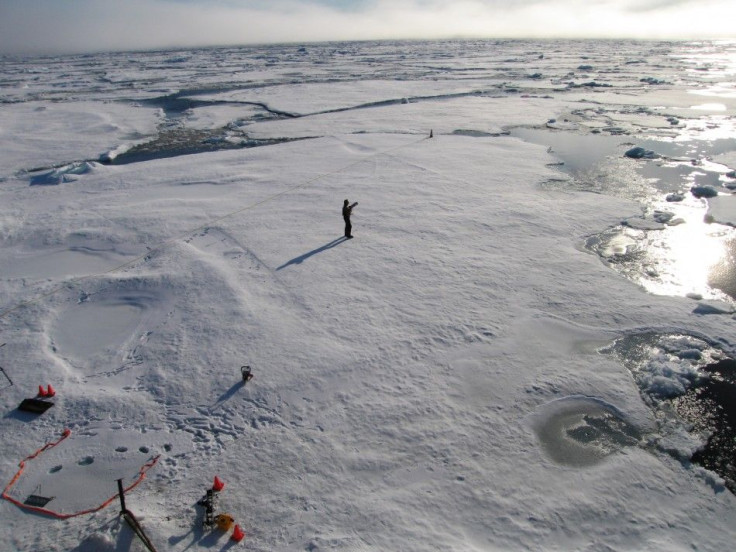Next Ice Age in 1,500 Years Prevented by Carbon Dioxide Emissions

The next ice age, due in the next 1,500 years, won't arrive because of high levels of carbon dioxide greenhouse gases in the atmosphere, scientists reported Monday.
Researchers already discovered evidence of at least five Ice Ages on Earth and around 3,500, the world will be due for another round of chilling and frozen wastelands. However, because of greenhouse gases that already exist in the atmosphere, another Ice Age likely won't happen.
The research appeared in the Monday edition of the journal Nature Geoscience.
At current levels of CO2, even if emissions stopped now we'd probably have a long interglacial duration determined by whatever long-term processes could kick in and bring [atmospheric] CO2 down, Luke Skinner, lead author and professor at Cambridge University told BBC News.
The study also included researchers from University College London, Bergen University in Norway and the University of Florida. The study concluded that for an Ice Age to occur, concentrations of carbon dioxide would have to fall to 240 parts per million - a 40 percent reduction of the 390 ppm in the current atmosphere.
The Ice Age stems from a wobble on the Earth's axis, known as the Milankovitch cycles, so-named after its discoverer, Serbian scientist Milutin Milankovic.
Unlike the wobble of the four seasons, the Milankovitch cycle takes place over tens of thousands of years. The last Ice Age occurred 11,500 years ago.
The wobble doesn't fully explain the drastic climate changes, but works in concert with carbon dioxide releases as the atmosphere warms up and carbon dioxide absorption as ice forms.
Skinner and fellow scientists found one era 780,000 years ago that most closely resembled the current one analyses of rock samples and time-sensitive sources. The next Ice Age came 1,500 years later the researchers found; a time frame the group based their current day estimates.
Lawrence Mysak, McGill University emeritus professor of atmospheric and oceanic sciences, told BBC News that the report was in line with his own research.
Even if the group's results look promising, the problem is how do we get down to 240, 250, or whatever it is? Mysak told BBC News. Absorption by the oceans takes thousands or tens of thousands of years - so I don't think it's realistic to think that we'll see the next glaciation on the [natural] timescale.
© Copyright IBTimes 2024. All rights reserved.





















